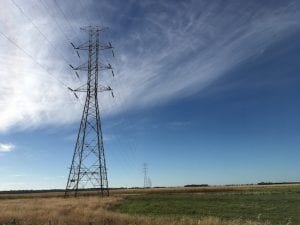Leading Australian clean energy experts and investors have issued a plea to state and federal energy ministers, ahead of their meeting on Friday, to prioritise key energy market reforms that will accelerate the clean energy transition and ignore calls from incumbents for delays.
The letter that has been published in newspapers as a full-page advertisement, and organised by The Australia Institute, calls on the COAG Energy Council to prioritise work towards a re-designed National Electricity Market, accelerate the implementation of AEMO’s Integrated System Plan and the development of renewable energy zones.
The group, which includes Atlassian co-founder Mike Cannon-Brookes, UNSW professor Renate Egan, and Tesla managing director Mark Twidell, say that such reforms could accelerate clean energy investment at a crucial time for the Australian economy.
“Australia faces an economic crisis caused by the Covid-19 pandemic. At the same time we face a challenge maintaining the reliability of electricity supply in a system designed around coal-fired power. Australia lacks bipartisan agreement on a long-term climate policy consistent with the Paris Agreement,” the letter says.
“The COAG Energy Council can address these problems by opening up the National Electricity Market to more competition from renewables, energy efficiency and enabling technologies such as batteries.”
“A fit for purpose NEM will stimulate investment in regional Australia and reduce energy costs,” the letter says.
The letter has also been co-signed by Amber Electric Co-CEO Dan Adams, Co-founder of DC Power Co Emma Jenkin and renewable energy investor Simon Hackett.
Federal and state energy ministers will meet on Friday via teleconference to discuss progress on energy market reforms, but it is understood that the agenda for the ministers meeting is largely uncontentious.
Energy ministers are also expected to hear updates from the market bodies about measures undertaken to manage both system security as well as the protecting consumers throughout the ongoing impacts of Covid-19 on the energy system.
The COAG Energy Council is set to be rebranded under the new “national cabinet” designation created in response to Covid-19 and prompting prime minister Scott Morrison to abolish the COAG system.
However, it is understood that energy ministers will continue to meet under similar arrangements to those under the “COAG” moniker.
The Australia Institute’s climate and energy program director, Richie Merzian, said it was important that energy ministers recognised the need to progress crucial energy market reforms, and that Covid-19 should not be used as an excuse for delay.
As reported earlier this week, letters sent to energy ministers by the Australian Energy Council, obtained under Freedom of Information laws, revealed just how quickly the lobby group representing some of Australia’s largest incumbent energy companies moved to slow down some key reforms, including the shift to five minute settlement.
The AEMC subsequently rejected a proposal to delay the introduction of a wholesale demand response mechanism and opted to delay the introduction of the five minute settlement rule by just three months.
“Australia’s energy market rules are designed for a slow, old electricity grid built around coal and they are no longer fit for purpose. The faster we can move to a modern, responsive energy market, the sooner Australia can unlock its extraordinary renewable energy potential and all of the economic and environmental benefits that come with that.” Merzian said.
“Energy, industry and technology innovators from around the country want our political leaders to understand that now is the time to be accelerating energy market reforms, not delaying them.”
The COAG Energy Council had previously tasked the Energy Security Board with preparing a proposed re-design of the National Electricity Market after 2025.
This work has recognised the changing dynamics within the Australian electricity market, which has seen a move away from a centralised system where a few large-generators supply power to customers and to a system with a growing number of distributed energy resources that allow consumers to produce a greater portion of their own energy needs.
“New rules that would encourage a genuine two-sided market, where consumers can take charge of their energy use, feed power back into the grid and reduce their usage at peak times, are all required to increase stability and reduce prices for Australians,” Merzian added.
Energy minsters meet on Friday and are expected to issue a communique of their agreed outcomes by Friday afternoon.










